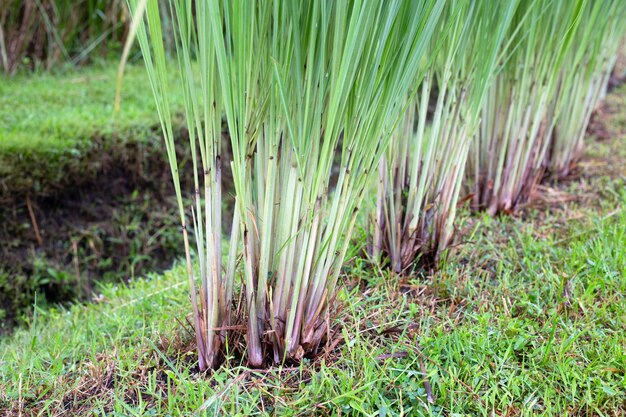How Are Herbs Beneficial for the Respiratory System?
Herbs that support lung health typically work through several mechanisms. They can soothe irritated nasal passages and airways, act as expectorants to break up and expel chest congestion, relax the muscles around the upper respiratory system to alleviate coughs, calm the release of histamines, deter harmful organisms causing respiratory issues, and provide antioxidants to reduce oxidative damage and inflammation.
9 Best Herbs for Lung Cleansing & Respiratory Health
Below are some of the best herbs to support respiratory health:
Eucalyptus
Native to Australia, eucalyptus has been used by the Aboriginal people for gastrointestinal issues, wound healing, fevers, and respiratory problems. After colonization, Australia began exporting eucalyptus oils. The refreshing aroma of eucalyptus is commonly used to promote respiratory health and soothe throat irritation. Eucalyptus contains cineole, a compound that acts as an expectorant, eases coughs and congestion, and soothes irritated sinus passages. Additionally, its antioxidant properties support the immune system during illnesses.
Lungwort
Lungwort is a flowering herb that resembles lung tissue. Since the 1600s, it has been used to promote lung and respiratory health and clear congestion. Lungwort contains compounds that effectively combat harmful organisms affecting respiratory health.
Oregano
Oregano is rich in vitamins and nutrients essential for the immune system. Its primary respiratory benefits come from carvacrol and rosmarinic acid, which are natural decongestants and histamine reducers that improve airflow in the respiratory tract and nasal passages. Oregano oil is highly beneficial and should be a staple in everyone’s medicine cabinet. For a premium blend of organic oregano oil, peppermint, and cayenne oil, consider Oregatrex?, which supports the immune system and promotes overall health with its high carvacrol content.
Plantain Leaf
The plantain leaf (Plantago major) has been used for centuries to ease coughs and soothe irritated mucous membranes. Clinical trials have shown it to be effective against coughs, colds, and lung irritation. Plantain leaf may also help relieve dry coughs by stimulating mucus production in the lungs.
Elecampane
Used by the Greeks, Romans, Chinese, and in Indian Ayurvedic medicine, elecampane has been valued for its respiratory support since the 1800s. Lozenges and cough drops made from elecampane root benefit from its relaxing effect on smooth tracheal muscles. Elecampane root contains inulin, which soothes bronchial passages, and alantolactone, an expectorant with antitussive properties.
Lobelia
Lobelia is considered one of the most valuable herbal remedies for respiratory support. It contains lobeline, an alkaloid that thins mucus and breaks up congestion. Lobelia also stimulates the adrenal glands to release epinephrine, which relaxes the airways and eases breathing. Because it helps relax smooth muscles, lobelia is included in many cough and cold remedies.
Chaparral
Native to the southwestern United States, chaparral (Larrea tridentata) has long been used by Native Americans for lung detoxification and respiratory support. Chaparral contains powerful antioxidants and NDGA (nordihydroguaiaretic acid), which influence histamine response. It also fights harmful organisms. Chaparral is most effective in tincture form, but chaparral tea can also support respiratory health by acting as an expectorant to clear mucus from the airways.
Peppermint
Peppermint and its oil contain menthol, which relaxes the smooth muscles of the respiratory tract and promotes free breathing. Menthol’s antihistamine effect makes peppermint a fantastic decongestant. Many people use chest balms and inhalants containing menthol to break up congestion. Additionally, peppermint is an antioxidant and combats harmful organisms.
Osha Root
Osha (Ligusticum porteri), native to the Rocky Mountain area, has been used by Native Americans for respiratory support. The roots contain camphor and other compounds that enhance lung health. Osha root helps increase circulation to the lungs, making deep breaths easier. During seasonal sensitivities, osha root produces a similar effect to antihistamines, calming respiratory irritation.
Supplementing With Lung Support Herbs
These herbs are available in various forms, including nutritional supplements and teas. Many people also grow these herbs in their gardens and consume them as food, ensuring a reliable source. However, if purchasing supplements, ensure they are organic, pesticide-free, ethically harvested, and given clean water. Always verify product quality.
For an easy option, consider Global Healing’s Lung Health supplement, which contains several of the herbs mentioned above, as well as lovage, lemon balm, orange peel, and menthol.

